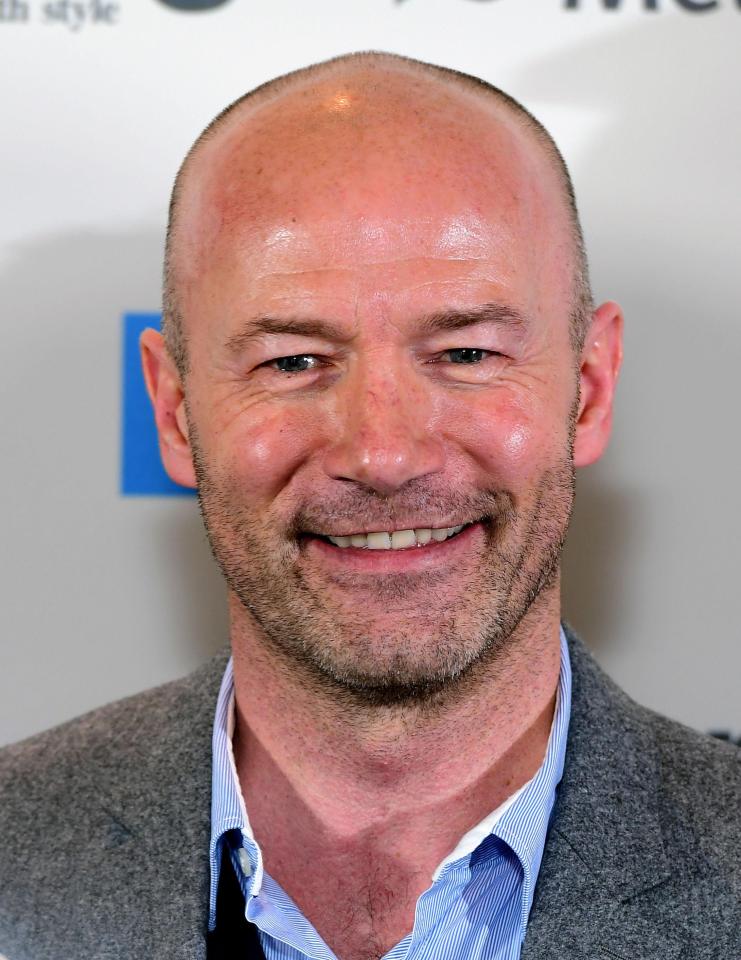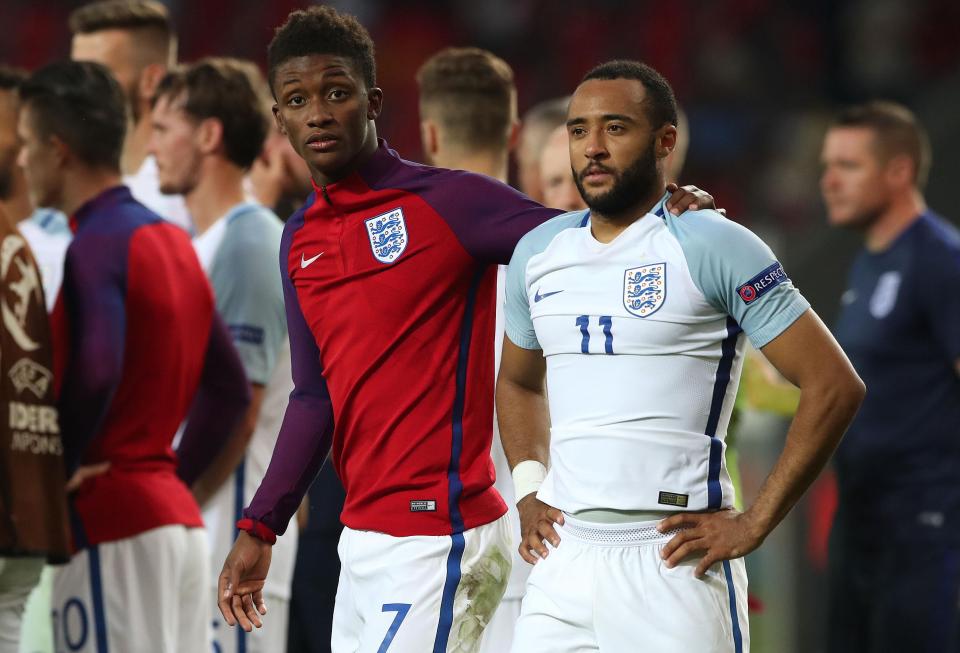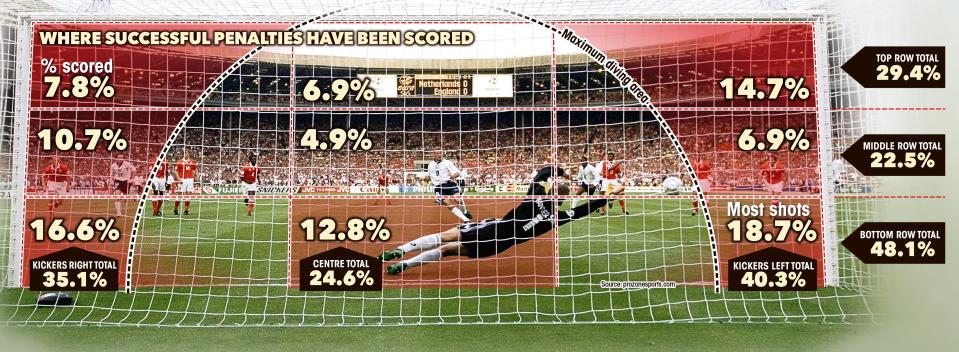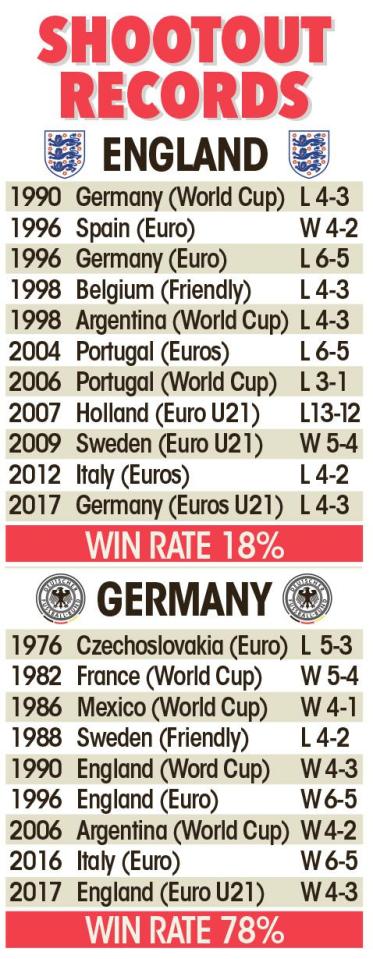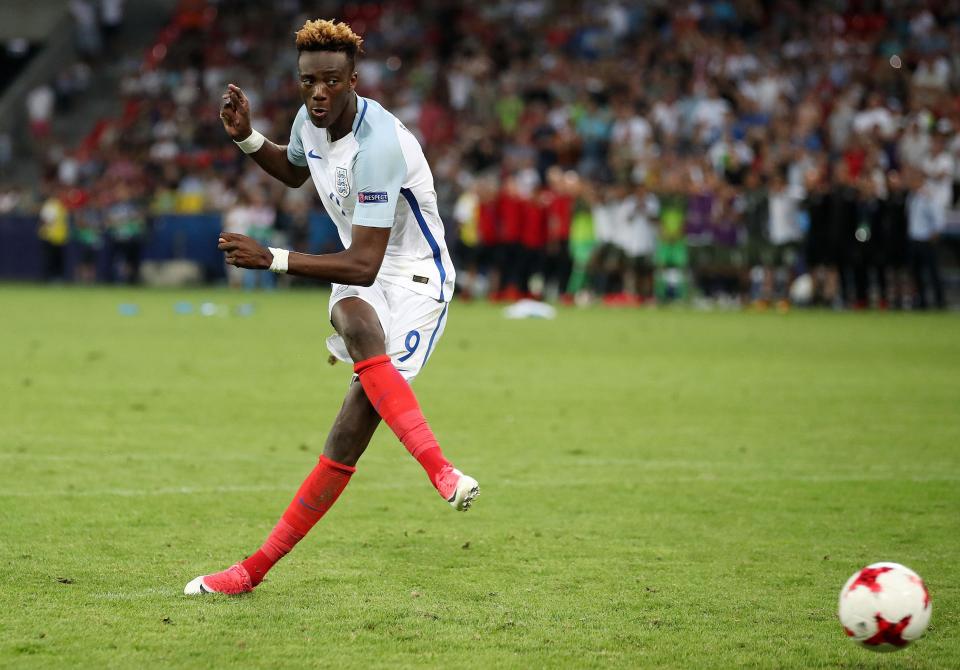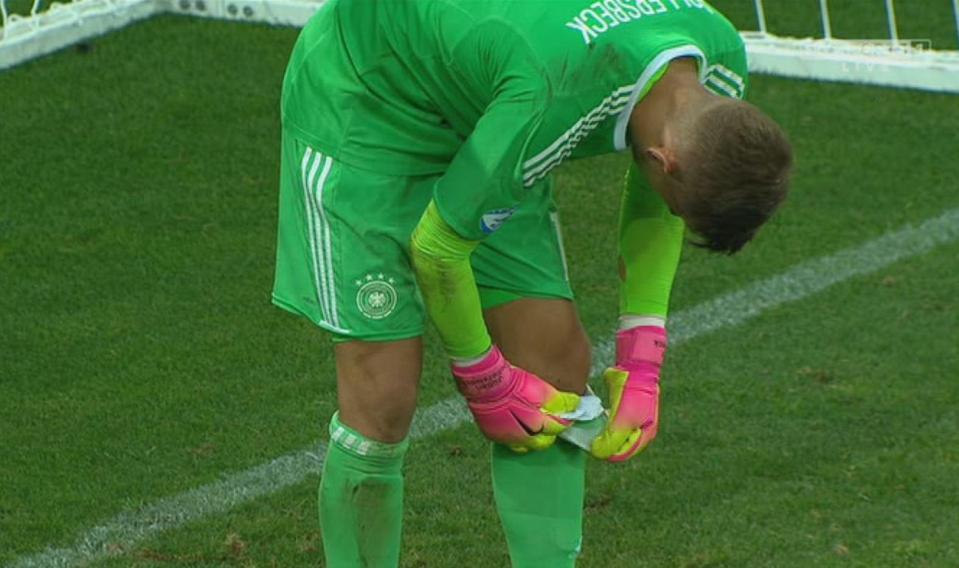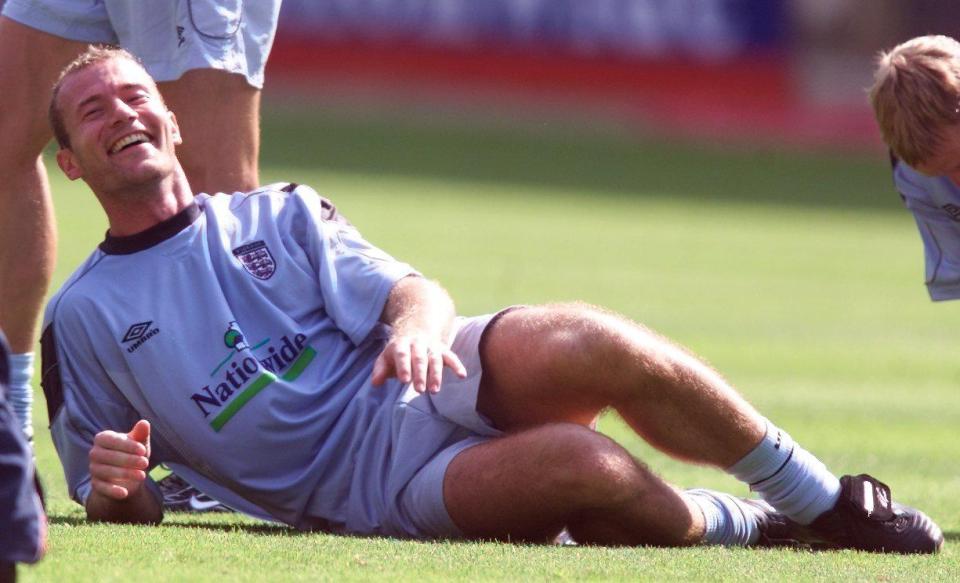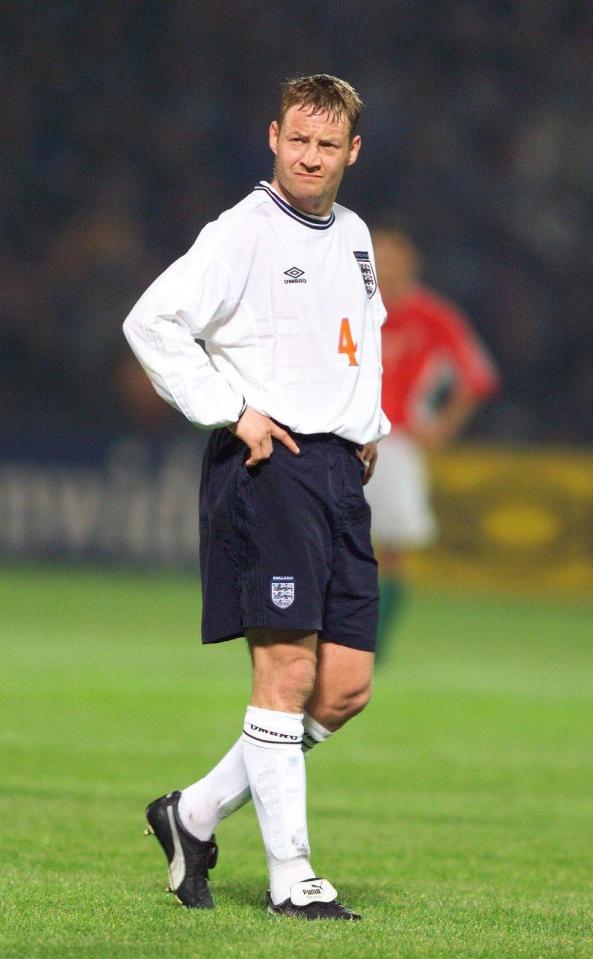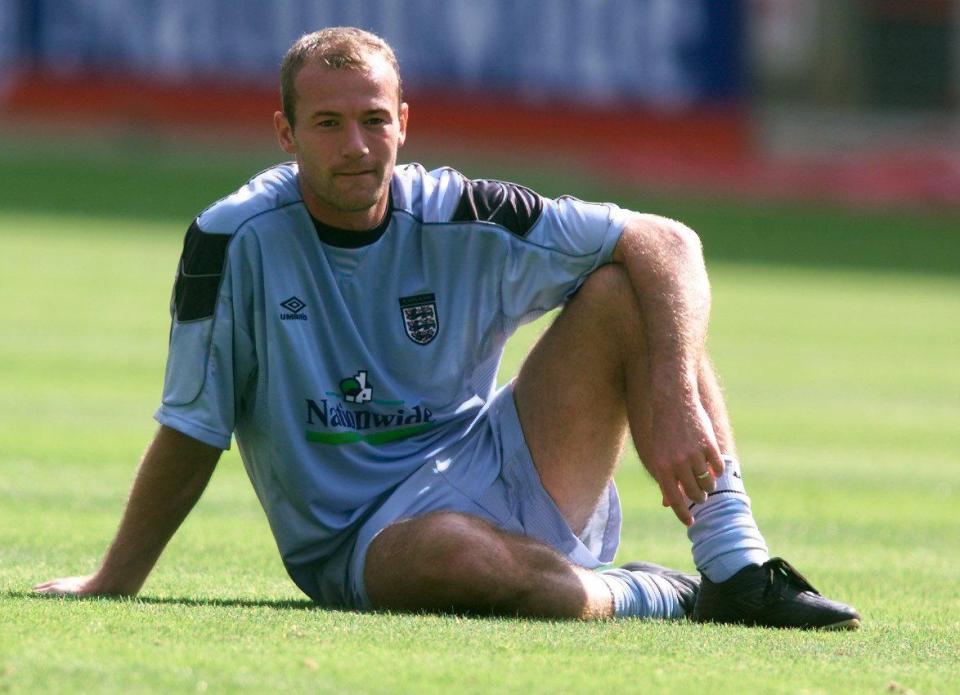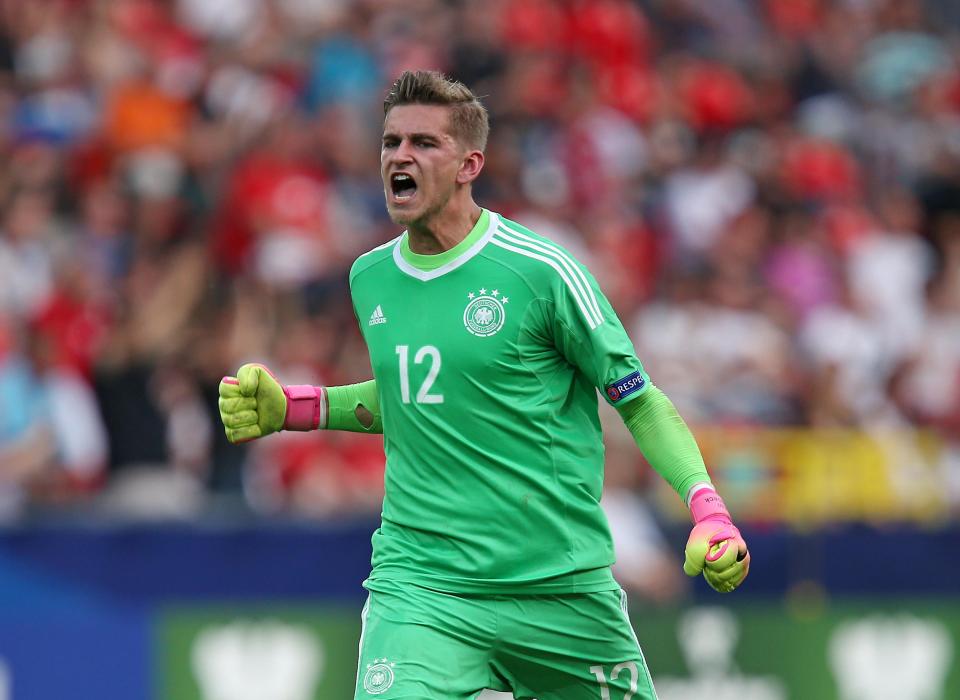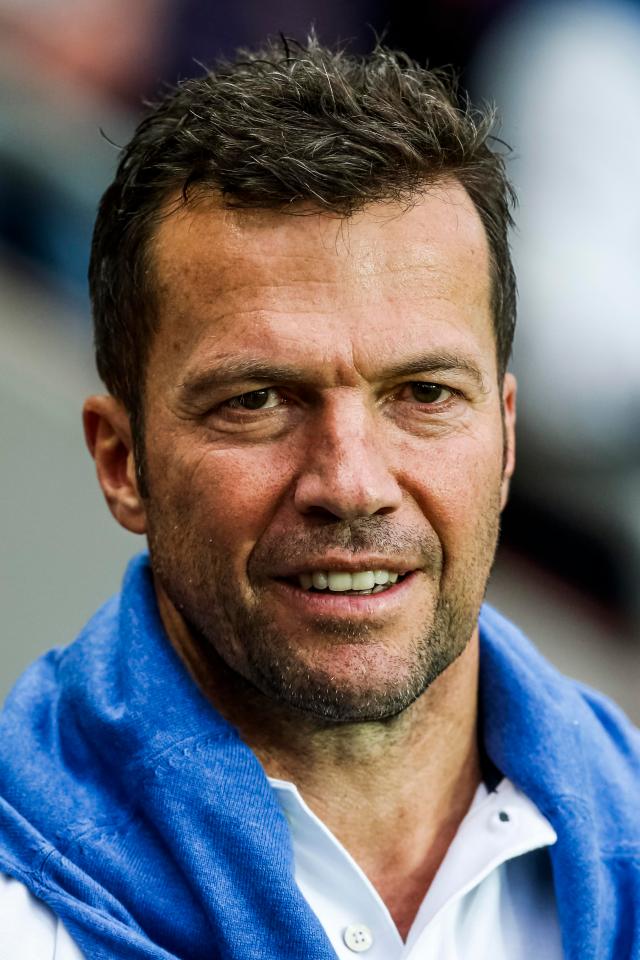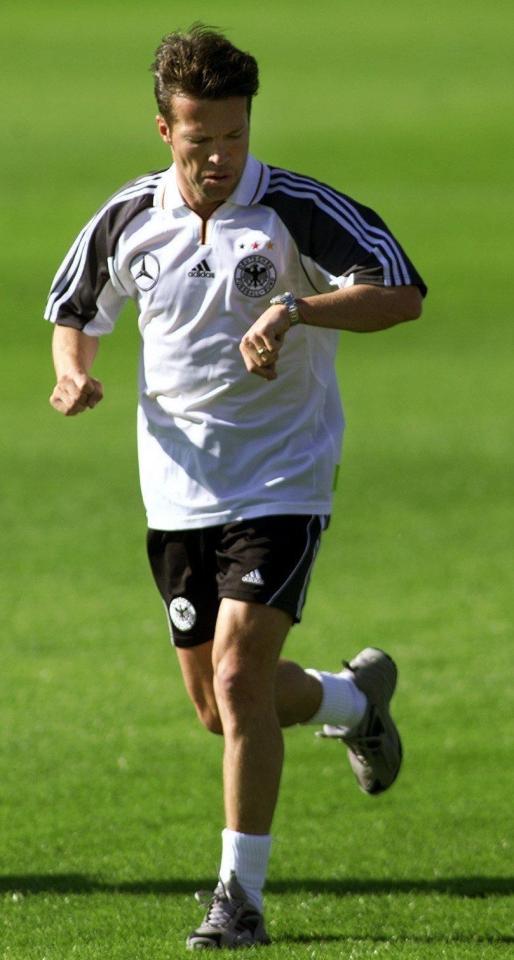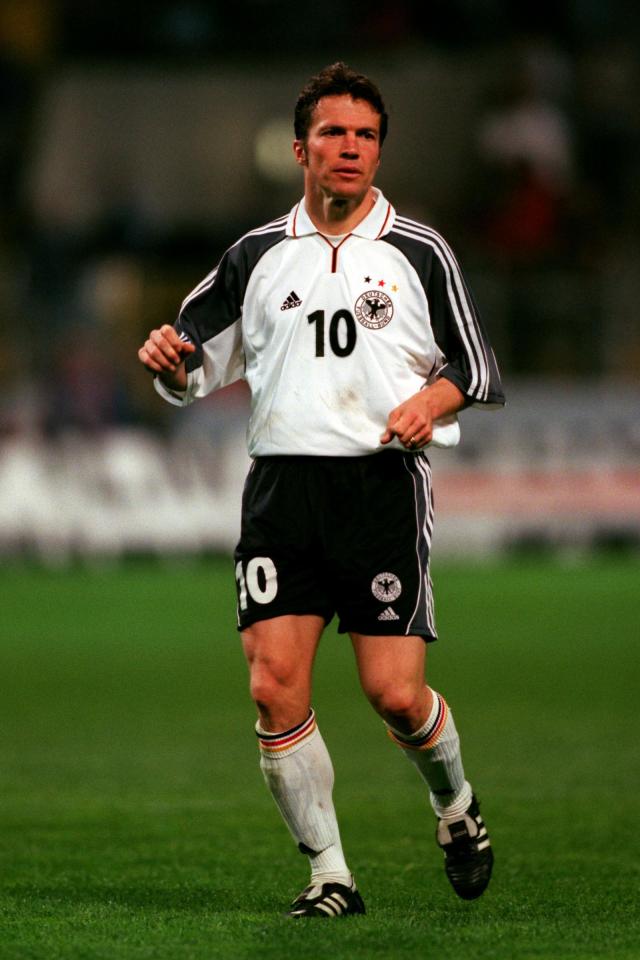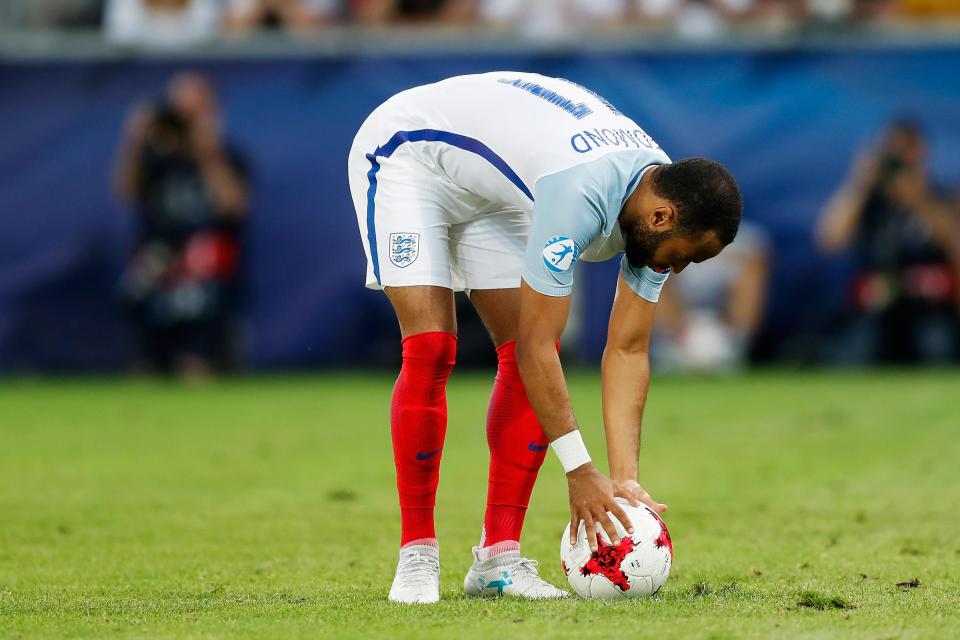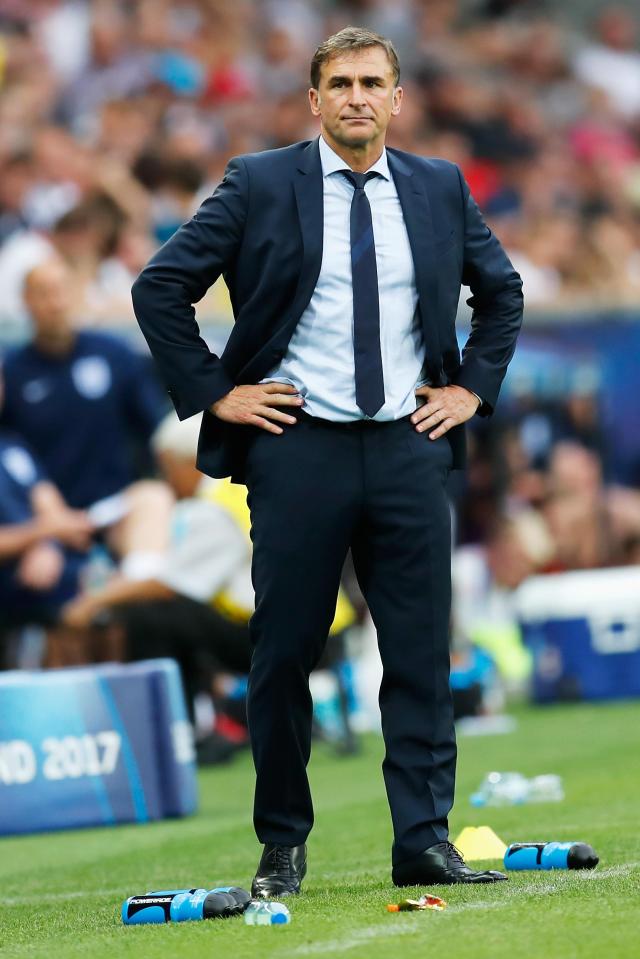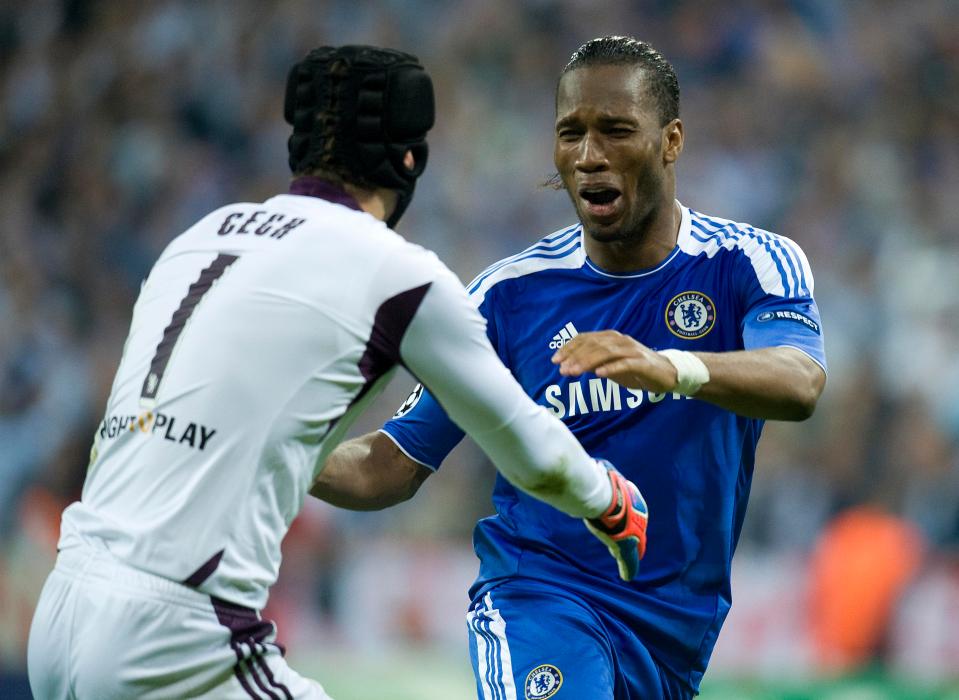Alan Shearer and Lothar Matthaus tell England’s penalty flops how spot-kicks should be taken
Young Lions crashed out of the the Euro Under-21 Championship after losing to their rivals in a shoot-out

THE more England fail in penalty shootouts, the bigger psychological problem it is becoming for the country.
Watching the Under-21s lose to Germany on Tuesday, it was obvious some of our lads really weren’t up for it.
Nathan Redmond didn’t look at all confident when he walked to the spot and his poor effort made it easy for the keeper to save.
But the Germans just seem to have a stronger mentality when it comes to shootouts.
All of their players look as though they WANT to take a penalty and sadly that isn’t the case with England.
Our players are putting themselves under so much pressure because we haven’t been successful in shootouts for so long it’s becoming a national obsession.
England’s senior team have lost seven of their eight shootouts — and I was part of three of them!
We beat Spain at Euro 96 but then lost to Germany in the semi-finals and again to Argentina at France 98.
Most read in football
But I had a pretty decent record from the spot and I always believed psychology and mental strength play a far greater part in these situations than football ability. You need to show the crowd and the opposing keeper you have the confidence to take a penalty.
No matter how nervous you might be feeling inside, when you are making that long walk from the centre circle to the penalty spot, you need to have an air of arrogance about you.
Show the keeper no matter how much he might try to put you off, you are relishing the opportunity to score.
It’s all about the desire and hunger to seize the moment and that’s where England don’t always look right.
Anyone can score from 12 yards in training, but doing it in front of a sell-out crowd when everything is riding on you is a completely different story.
You can never replicate the pressure of a shootout on the training ground.
But what you can do is practise and practise until it’s second nature to put that ball exactly where you want it.
The key to any successful penalty is to always do what you have practised and never change your mind.
Even if the keeper is standing to one side of the goal and tempting you to go in a different direction, always go the way you have prepared. I always believed that, even if the keeper guessed right, he still wasn’t stopping it as long as I got it right.
My favourite place was high to the keeper’s right. That’s where I scored with an early penalty against Argentina in 1998 — and I went the same way in the shootout.
Unfortunately, David Batty ignored my advice that day.
He asked me what he should do if it went to a shootout and I told him, ‘If you have any doubts, smash it straight down the middle as hard as you can’. But when it came to the moment, David shot low to his left and the keeper saved.
He admitted later, ‘I changed my mind’. That’s what pressure does.
With England and for European games we would train in the stadium the night before games and we knew there would be somebody from the opposition watching us.
So I always made a point of staying behind and deliberately taking ten penalties all the same way — the OPPOSITE way to where I would stick one in the game.
Because I had practised so much in the privacy of our training ground, I was confident enough to go the other way for the benefit of the spies.
These days it’s a lot easier for opponents to prepare for penalties. In fact there’s no excuse for any player not to do his homework.
The German keeper Julian Pollersbeck was clearly well informed the other night.
He even had a piece of paper tucked down his sock, presumably telling him which way to go for each player.
Even in my day I would go on in the internet to study a keeper’s technique.
I know the Germans say they don’t practise penalties, but I’m not buying that one.
Nobody gets that good just by chance.
Lothar Matthaus: Get in a German, England
IN Germany everybody is laughing — it’s always the same story.
Maybe the pressure is too much for the English players. It seems whenever they go to pens, they lose.
If it’s being discussed before a tournament, then you play Germany and it goes to penalties, it gets into the brains of both sets of players.
Germany think they can’t lose; England fear they can’t win.
The best thing the FA could do would be to bring in a German coach, just for penalties. That might change something in the heads of the players.
You’d have to pay him a high salary but it would be worth it to change history. Our mentality is strong. The German players are sure of themselves and confident. They know what they have to do.
Psychology is the most important thing. The players have to feel proud and confident in what they are going to do, to be happy to make that walk and do something big for their country.
Of course it helps that Germany win on penalties. We haven’t lost a competitive shootout since Czechoslovakia in the 1976 Euros — and that was before I was a player! So we expect to win. But there is no real way to prepare for them.
It isn’t possible to replicate the pressure and emotion of having to do it when you’re tired after 120 minutes, in a full stadium, with your whole country watching. You can’t train for that.
When you are walking up to take a penalty, you have to concentrate on yourself and the ball. You must never look at the keeper. I always told myself: “If you hit it hard, into the corner, no keeper can save it.” If you start thinking too much about anything else, it makes it harder.
You have to stay focused on the task, rather than worrying about the wait you have. If you start to think about all that, then there’s a greater risk of missing.
It’s about focusing on the ball and where you are going to put it.
Don’t try and trick the keeper because that gives him more chance of saving it, especially if you don’t hit it really hard.
We back ourselves to be strong enough and trust our qualities.
That is what hurts England. The players feel, especially if it is against Germany, that no matter what they try it will always end one way. German players are proud of that story.
I played with Stefan Kuntz, who is the coach of our Under-21s, and he will have told his players to believe they would score . . . that history was on their side. That would have motivated them.
And while Aidy Boothroyd would have said it was the chance for England to make history, it’s still reminding them about the defeats.
It wasn’t a surprise for me to see Julian Pollersbeck, our keeper, with that piece of paper in his socks.
The England players saw him looking at the paper and started wondering what it said — even if there was nothing written on it at all. It disturbed their concentration a little and that can make the difference.
People will say that in 2012 Chelsea beat Bayern Munich on penalties to win the Champions League.
But Bayern was not a “German” team and Chelsea were not an “English” one.
And maybe we just have better keepers than you, too. I remember 1990. You had Peter Shilton in goal. He was only 6ft 1in or so and he was 40. We knew he wasn’t what we call a “penalty killer”. We had Bodo Illgner, who was 6ft 4in.
GERMANY legend Lothar Matthaus is SunSport’s European football expert. Tweet or


